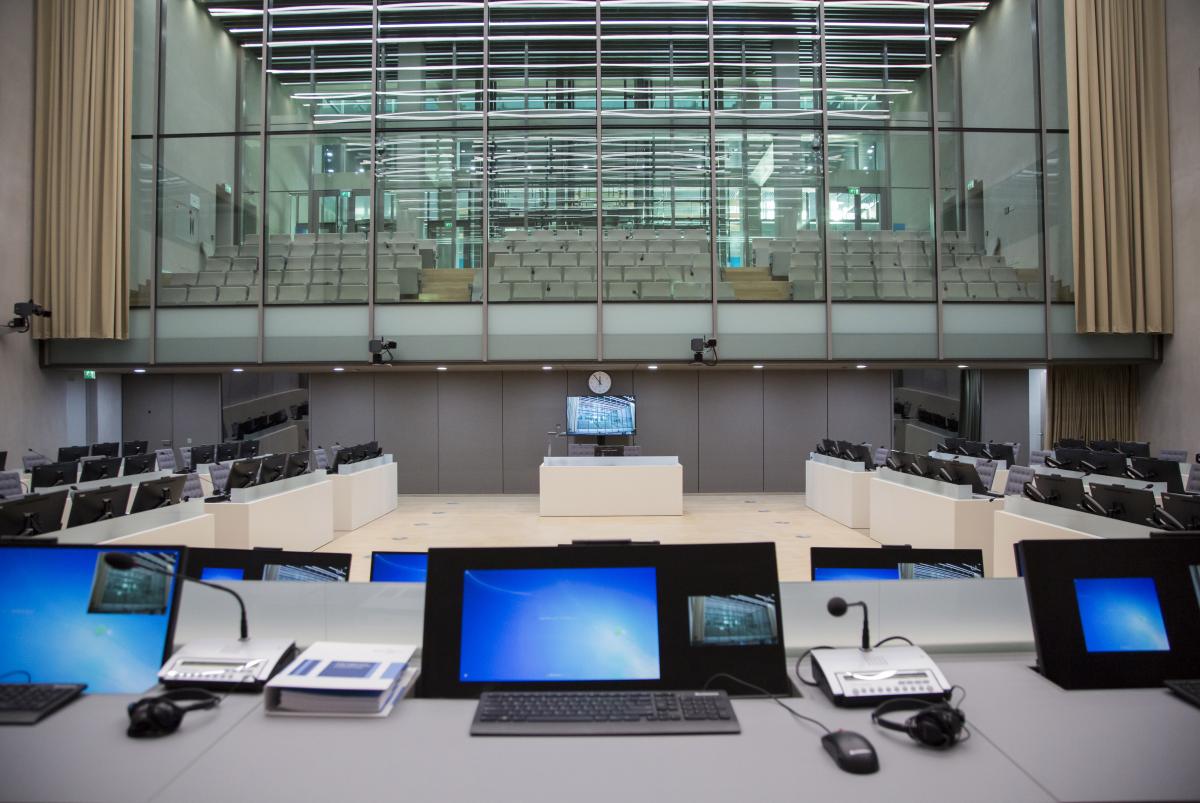ICC Judges update Chambers Practice Manual to include timeframes for the rendering of key decisions

Today, 29 November 2019, the fourth edition of the "Chambers Practice Manual" of judges of the International Criminal Court (ICC) was issued in both English and French.
The update of the Chambers Practice Manual, resulting from collective discussions held at the Judges' retreat near Arnhem (Netherlands) on 3-4 October 2019 and drawing on the preparatory work undertaken by a number of judges on this issue, adds a number of specific deadlines for rendering diverse types of decisions and judgments. These guidelines for the timing of key judicial decisions now introduce a coherent, consistent and predictable system of timeframes regulating work at pre-trial, trial and appeal level. They aim to achieve a significant step forward in respect of the efficiency and expeditiousness of Court proceedings.
The Chambers Practice Manual has been updated to include the following deadlines. At the pre-trial level, decisions on requests of the Prosecutor for authorisation to proceed with an investigation under article 15 of the Statute, will be rendered within 120 days. At the trial level, the decision on conviction or acquittal pursuant to article 74 of the Statute will be rendered within 10 months from the date of the end of the closing statements. A decision on sentencing pursuant to article 76 of the Statute will be rendered within four months of the date of the decision on conviction. At the appeals level, judgment on appeals against conviction, acquittal or reparations orders will be rendered within 10 months of the date of the filing of the response to the appeal brief, unless an oral hearing occurs, in which case it will be rendered within 10 months of the closing of the oral hearing. Judgment on appeals against a decision on sentencing, in the absence of an appeal on conviction, shall be rendered within four months of the filing of the response to the appeal brief or, if an oral hearing occurs, within four months of the holding of the hearing. Similarly, in respect of interlocutory appeals, judgment shall be rendered within four months of the filing of the response to the appeal brief or, if an oral hearing occurs, within four months of the holding of the hearing. In the updated Chambers Practice Manual, modifications to the previous edition have been made to the introduction and to paragraphs 1-2, 55, 85-93 of the Manual.
These timeframes set out the maximum periods and do not preclude the rendering of decisions and judgements at an earlier stage. Extensions of the timeframes are limited to exceptional circumstances, requiring explanation in a public decision.
In addition, the update to the Chambers Practice Manual formally incorporates the 'Guidelines for ICC Judgement Drafting' and 'Guidelines for ICC Judgment Structure'. These guidelines aim at establishing a unified approach to the judgment drafting process and setting out a structure for judgments on conviction or acquittal rendered by the Court. Drawing upon best practices and lessons learned, the judges agreed on the adoption of an internal working methodology and team structure to ensure that trial chambers commence the preparation of judgments at an early stage and follow a coherent and consistent structure, while still being appropriately adapted to the needs of specific cases. While the content of the guidelines themselves remain internal, their inclusion by reference into the Chambers Practice Manual formally incorporates them into the practice of Chambers going forward.
In incorporating these significant updates to the Chambers Practice Manual, the judges of the Court have built upon the pre-existing regulatory scheme to establish a coherent, consistent and predictable system of timeframes regulating the work of all three judicial divisions, which is unparalleled amongst other international courts and tribunals. These timeframes serve not only the right of an accused person to expeditious proceedings as a component of his or her right to a fair trial, but further reflect the judges' understanding of the need for efficiency, their confidence in their capacity to meet realistic time frames, and their commitment to improving the practice of Chambers, and, in so doing, the functioning of the International Criminal Court as a whole.
29 November 2019 - Chambers Practice Manual
For further information, please contact Fadi El Abdallah, Spokesperson and Head of Public Affairs Unit, International Criminal Court, by telephone at: +31 (0)70 515-9152 or +31 (0)6 46448938 or by e-mail at: [email protected]
You can also follow the Court's activities on Twitter, Facebook, Tumblr, YouTube, Instagram and Flickr